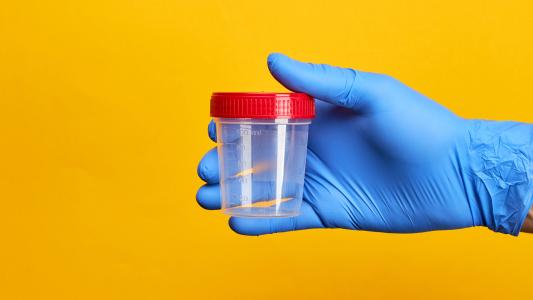New research out of Singapore may prove crucial to treating liver damage caused by acetaminophen, one of the world’s most commonly used pain relievers.
Researchers had previously thought that a human signaling protein, called interleukin 11 (IL-11), may help livers damaged by acetaminophen toxicity — but this new study found just the opposite.
“This discovery could have implications for treating drug-induced liver failure, which can cause death if a liver transplant is not possible,” Duke-NUS professor of cardiovascular medicine and IL-11 expert Stuart Cook said in a statement.
Acetaminophen overdose: The commonly used painkiller — the active ingredient in Tylenol, among other drugs — is also a common cause of liver toxicity. Acetaminophen poisoning is the primary cause of liver transplantation in the U.S.; it sends over 56,000 people to the ER per year and kills hundreds.
Being so readily available, acetaminophen toxicity “can result from either an acute overdose or from chronic overuse,” according to U.S. Pharmacist, while unintentional overdoses “may also occur as a result of ingestion of multiple products containing acetaminophen.”
(Especially dangerous? People not realizing the drug is present in mixed-compound meds, such as cold medicine, and accidentally doubling up.)
According to Duke-NUS, patients suffering from acetaminophen toxicity can be treated with a drug called N-acetylcysteine — but only within the first eight hours. Any longer than that, and you may be looking at a liver transplant as the only option.
Enter interleukin: Researchers have been studying acetaminophen liver damage in mice, where the team found evidence for IL-11’s detrimental effects.
Their study, published in Science Translational Medicine, found that mice with liver poisoning had high levels of mouse IL-11 in their serum; digging in deeper, the team found that the mouse IL-11 was actually activating pathways that led to liver cell death.
However, when the acetaminophen-modeled mice received human IL-11, their liver damage was reversed. The human IL-11 outcompeted the mouse’s natural protein, blocking the receptor — and preventing liver damage.
“This means that IL-11 is actually a liver toxin,” Cook said. “We found that blocking its cell receptors with an antibody can help the liver regenerate after it has been injured. This discovery could have implications for treating drug-induced liver failure, which can cause death if a liver transplant is not possible.”
The team’s next step is to see if IL-11 blocks the regeneration of cells in other damaged organs.
We’d love to hear from you! If you have a comment about this article or if you have a tip for a future Freethink story, please email us at [email protected].






